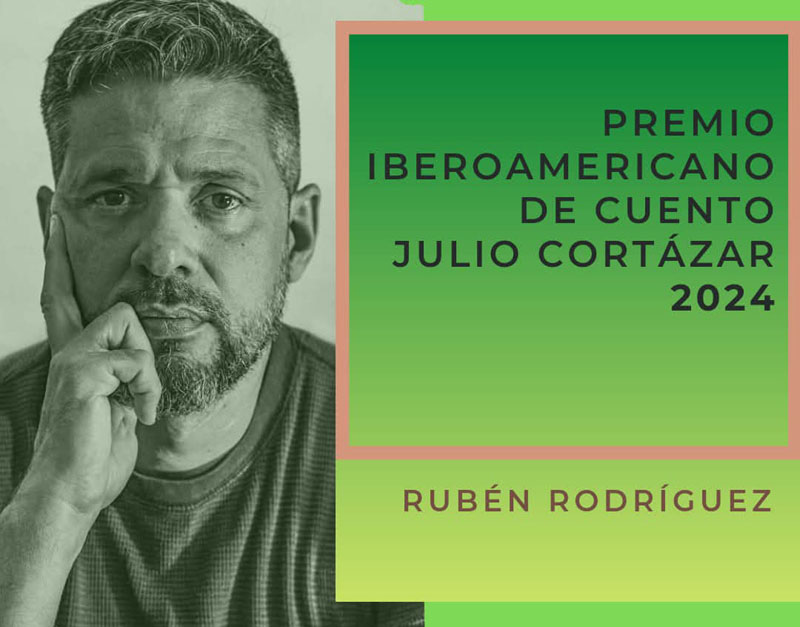Rubén Rodriguez, XXII Ibero-American Short Story Prize Julio Cortázar
- Written by Milo García
- Published in Opinion
- Hits: 3739

Among Rubén Rodríguez González's qualities is perseverance. He imagines, analyzes, writes, edits, sends again and again, as if his life depended on it. If he sets his mind to it, he can climb a mountain or win a literary prize; luckily, to protect his physical integrity in the fall of a steep slope, he was born with the gift of writing.
He is a renowned Holguín writer and journalist, awarded with the Alejo Carpentier and La Gaceta Awards, two Literary Critics Awards in 2008 and 2023, who stands out for his extensive list of interests from works for adults to children's and young adult literature, who has no qualms about jumping from the purest realism to the most ethereal fiction.
He recently received the Ibero-American Short Story Prize Julio Cortázar in Havana for his text "Las codornices" (The Quails), a story about the cruelty hidden behind everyday actions. According to the writer, inequalities, sensitivity, and the challenge of living and surviving coexist.
"It is a realistic story, full of contrasts, that takes place in present-day Cuba, although it could happen anywhere else. It is a simple, direct, even brief text without artifice or technical display, although it contains a deep drama," says the author.
-Why "Las codornices"?
-It has to do with the story being told. You have to read the story to find out more...
When Rubén writes, the time generally depends on the complexity of the plot or how he visualizes or conceives the story.
Cuando Rubén escribe lo hace de un tirón, el tiempo generalmente depende de la complejidad del argumento o de cómo visualiza o concibe la historia. About this text in particular he expressed: "It flowed naturally and came out at once, without setbacks; which happens when I have the characters well constructed and the conflict and its resolution correctly defined."
After five attempts in the same contest, he achieved two mentions and finally the grand prize. "If I were to compare this story with the previous ones, I would say that it does not deal with the theme of love like Manzanas verdes and El año del cerdo, nor does it have the formal complication of Trivialidad, nor does it have the fantastic element like Anatomía de la tempestad."
"Perhaps that is where its merit lies, in its adherence to the characteristics of the traditional story, in the simplicity of its structure and the sparseness of formal elements that are used to narrate, as well as the use of dialogue. But the jury could speak better about this."
As an excuse for his insistence, he declares himself an admirer of the author of "Rayuela", a profound student of narrative techniques and an exquisite cultivator of the fantastic genre: "I set myself that professional goal and I insisted stubbornly. I appreciate the demands of the contest and its worth. After several attempts, I have put together a book of stories with the works destined for the Cortázar."
Rubén confesses that he is a perfectionist and an implacable critic of his work, who still has not freed himself from the impostor syndrome. What does a prize bring? Probably not much, but sometimes it works as an internal value, a justification of why we do what we do, sometimes it prevents getting lost in mental labyrinths where you don't even know who you are. "
The most important thing is the full, almost morbid enjoyment that writing means to me, an immense source of pleasure and happiness, regardless of the subject addressed and the chosen narrative tone. I don't find writing distressing; if it were, I wouldn't do it."
Who won the Julio Cortázar Ibero-American Short Story Prize? A lover of coffee and early mornings, an editor with exquisite taste who enjoys placing punctuation marks where they belong, a writer who, even if he camouflages himself, is what he writes, a fundamental link in this house: the local newspaper ¡ahora!
